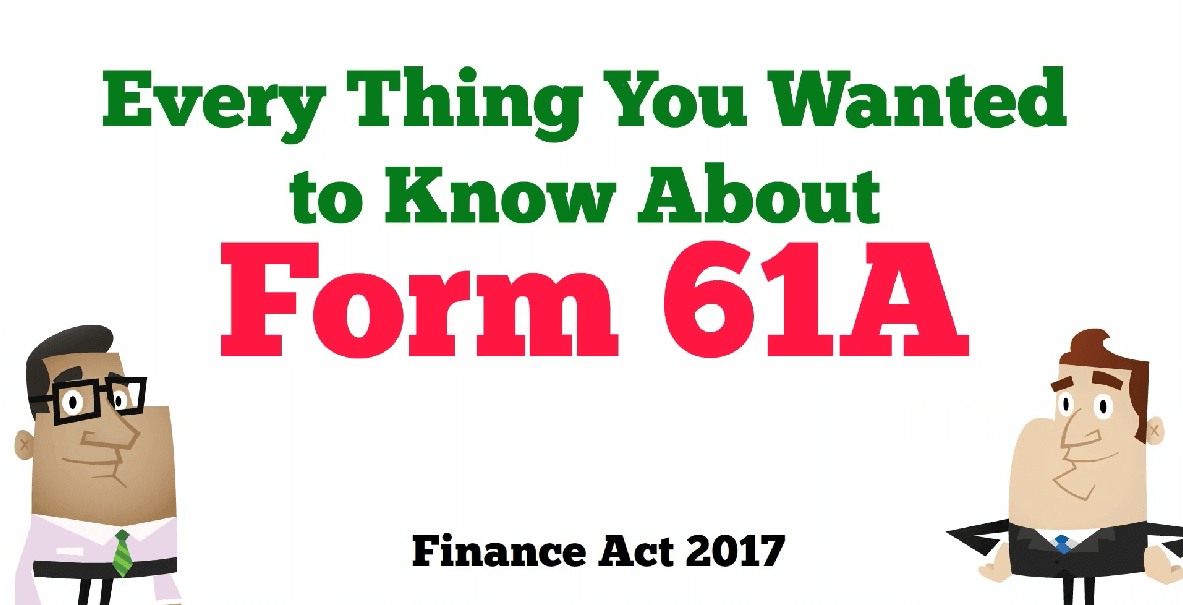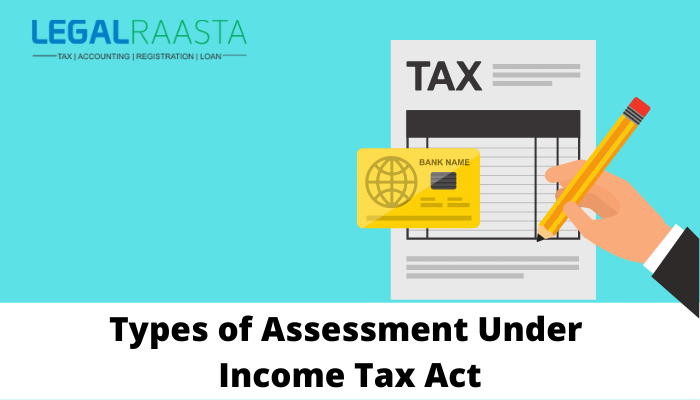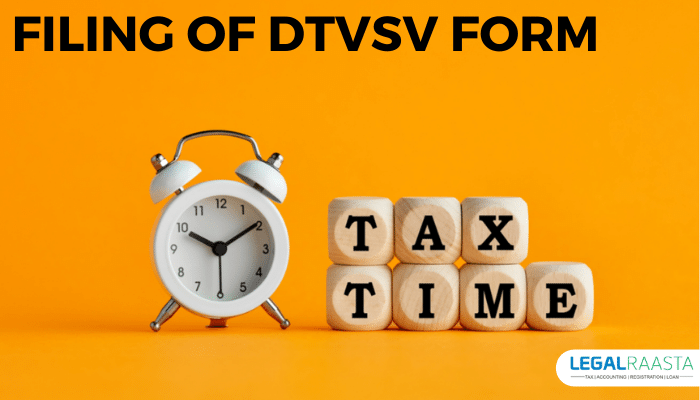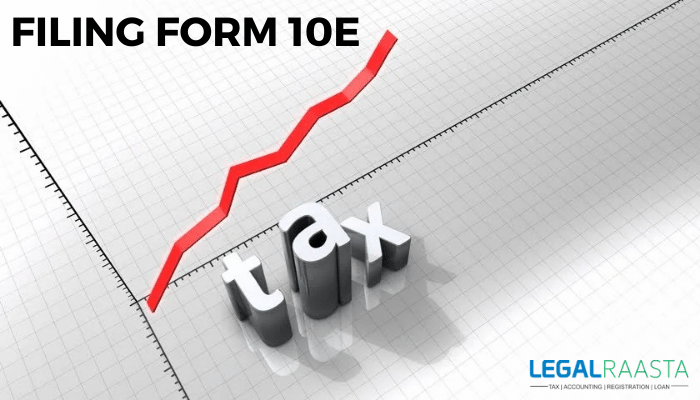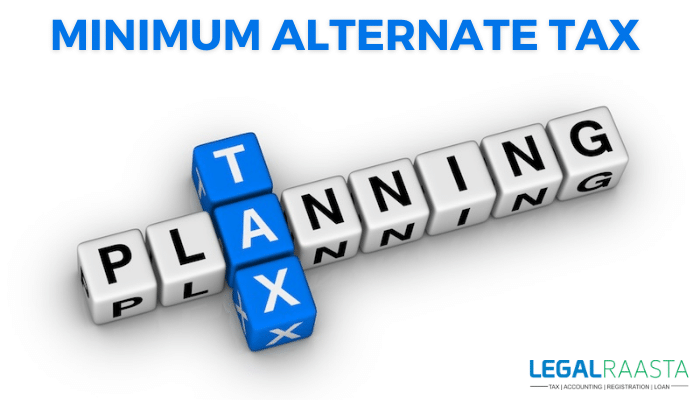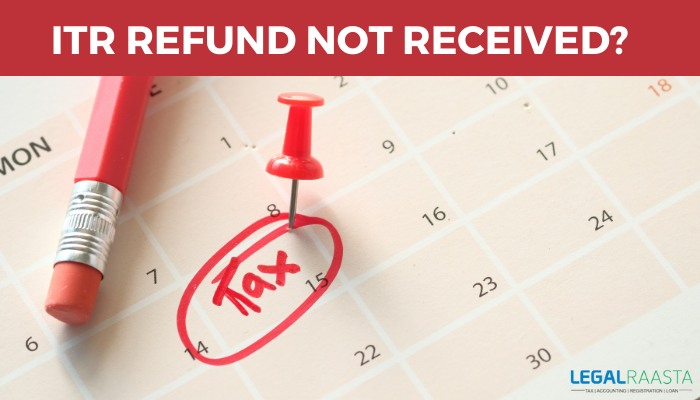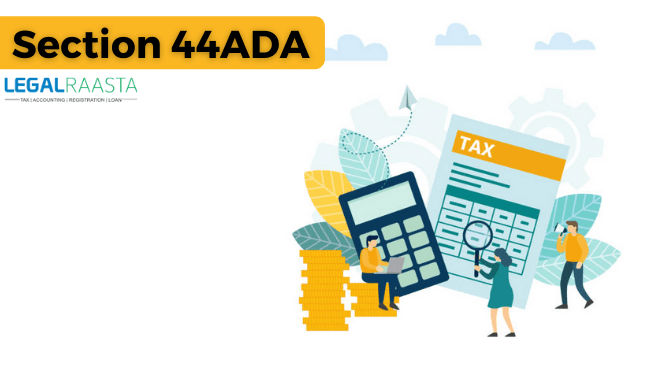Form 61A – to Furnish the Statement of Specified Financial Transactions (STF)
The Government of India has been striving to eradicate black money. One of the steps has been to obligate the authorities, government and others, to report all high-value transactions. The Income Tax Act of 1961 came up with the requirement of Form 61A. The objective was to collect information on the High-Value Transactions occurring and to ascertain the legality, This Form 61A or Statement of Financial Transactions (STF) as it may be called, is basically a record of the statement of cash transactions exceeding Rs. 2,00,000/-. An earlier version of this Form was called "Annual Information Return (AIR)". Specified persons are required to submit this statement, about specified financial transactions under Section 285BA. A previous version of this Form existed under the name "Annual information return" or "AIR". Let's understand the requirements, rules & regulations surrounding Form 61A.Basic Provisions of Section 285BA
Section 285BA of the Income-tax Act, 1961 required all those assessees that are liable to be audited u/s 44b, to file STF. A Cash transaction in excess of Rs. 2,00,000/-, on the sale of goods and/or services, is to be registered or recorded under this. This Statement is required to be furnished by "specified persons" in respect of "specified transactions". Both of which have been listed under the new Rule 114E.Who are the "Specified Persons"
The person responsible for registering, or bookkeeping services and/or other documents under any Accounting Methods, containing a record of any specified financial transaction, under any law for the time being in force, has to furnish Form 61A. In other words, all those persons who are obligated to furnish Form 61A are:- An Assessee,
- Any Prescribed Person in the case of an office of Government,
- Any Local Authority or other public body or association,
- The Registrar or Sub-Registrar appointed u/s 6 of the Registration Act, 1908,
- A Registering Authority set-up to register Motor Vehicles under Chapter IV of the Motor Vehicles Act, 1988,
- Post-Master General as referred to in Clause (j) of Section 2 of the Indian Post Office Act, 1898,
- A Recognized Stock Exchange referred to in Clause (f) of Section 2 of the Securities Contracts (Regulation) Act, 1956 (42 of 1956),
- An officer of the Reserve Bank of India constituted u/s 3 of the Reserve Bank of India Act, 1934 (2 of 1934),
- Depository referred to in Clause (e) of Sub-Section (1) of Section 2 of the Depositories Act, 1996 (22 of 1996),
- The Collector referred to in Clause (g) of Section 3 of the Right to Fair Compensation and Transparency in Land Acquisition, Rehabilitation and Resettlement Act, 2013,
- A Prescribed Reporting Financial Institution, that could be a:
- Company Registration, under the Banking Act,
- Co-operative Bank,
- Nidhi Company with section 406 of the Companies Act 2013,
- Non-banking Financial Company or companies with NBFC Registration,
- Any Institution issuing Credit Card,
- Company or Institution issuing bonds or debentures,
- Company issuing shares,
- Trustee of a Mutual Funds,
- Authorized Dealer, Money Changer, Off-shore Banking Unit or any other person defined in FEMA, 1999.
What are the "Specified Transactions"
Under Sub-Section (!), "Specified Financial Transaction" means all transactions of:- Purchase, Sale or Exchange of goods/services/property/right/interest in a property,
- Works contract,
- An investment made or an expenditure incurred,
- Taking or Accepting a loan or deposit.
| Nature of transactions | Value of Transactions | Reporting Entity |
|---|---|---|
| Cash payment for buying Bank Drafts, Pay Orders, Banker’s Cheque, or any such Pre-Paid Instruments from RBI | Equal to or more than Rs. 10 Lakhs in a financial year | Banking Companies, Co-operative Banks covered under the Banking Regulation Act 1949 |
| Cash Deposits or Withdrawals in the current account | Equal to or more than Rs. 50 Lakhs in a financial year | Banking Companies, Co-operative Banks covered under the Banking Regulation Act 1949 |
| Cash Deposits or Withdrawals other than the current account | Equal to or more than Rs. 10 Lakhs in a financial year | Banking Companies, Co-operative Banks covered under the Banking Regulation Act 1949 and the Post Master General |
| Fresh Time Deposits (not Renewals) | Equal to or more than Rs. 10 Lakhs in a financial year | Banks, Co-operative Banks, Post Offices, Nidhi Company incorporation, NBFC |
| Credit card payments | 1) Equal to or more than Rs. 1 Lakh in cash 2) 10 Lakhs or more by any other payment mode | Banks, Co-operative Banks, Any other institutions issuing such credit cards |
| Bonds/ Debentures purchased | Equal to or more than Rs. 10 Lakhs in a financial year | Any company/institution issuing such bonds or debentures |
| Equity or Share Purchase (including Share Application money) | Equal to or more than Rs. 10 Lakhs in a financial year | Any company/institution issuing such shares |
| A Buy Back of shares (other than from open market) | Equal to or more than Rs. 10 Lakhs in a financial year | Any listed company buying back its shares/securities u/s 68 of the Companies Act 2013 |
| Units purchase (other than for transfer from one scheme to another) | Equal to or more than Rs. 10 Lakhs in a financial year | A trustee or Authorized personnel of Mutual Funds |
| Sale of Foreign currency using any payment mode to a person | Equal to or more than Rs. 10 Lakhs in a financial year | Authorized Persons under the FEMA 1999 |
| Purchase or Sale of immovable property by any person | for an amount of Rs. 30 Lakhs or more, as valued by the Stamp Valuation Authority | Inspector General/Registrar/Sub-registrar |
Due date of filing Form 61A
[caption id="attachment_19828" align="aligncenter" width="318"] form 61a: Due Date for filing: LegalRaasta[/caption]
form 61a: Due Date for filing: LegalRaasta[/caption]
Form No. 61A has to be furnished by 31st May, immediately following the financial year in which the transaction is registered or recorded. In case the financial transaction has occurred in FY 2018-19, the due date of filing Form 61A is 31 May 2019.
This statement is filed online, with digital signatures.
You can Download your Form here:
[fusion_button link="https://www.legalraasta.com/blog/wp-content/uploads/2019/04/Form-61A.pdf" color="default" size="small" type="" shape="" target="_self" title="" alignment="center" gradient_colors="|" gradient_hover_colors="|" accent_color="" accent_hover_color="" bevel_color="" border_width="0px" shadow="no" icon="" icon_divider="yes" icon_position="" modal="" animation_type="0" animation_direction="down" animation_speed="0.1" class="" id=""]Download Form 61A[/fusion_button]
Failure to comply with Section 285BA and related Rules
Failure to furnish Form 61A
In case an assessee has not filed within the prescribed time, the tax authorities are empowered to issue a notice to him, u/s 285BA(5). It demands the assessee to submit the Form 61A within 30 days from the issuance of such notice. If he still doesn't submit the Form, a penalty of Rs 500 per day, will be levied. The penalty will be calculated from the expiry of the period stipulated in the notice.
Inaccurate information in SFT
In the event, the tax authorities find that the statement furnished by a person is defective, they will notify and demand the necessary alterations. These rectifications are to be made within 30 days of the date of issue of notice. If the person fails to furnish the corrected Form, within time, the statement would be declared void. In that case, the authorities may take action and impose a penalty.
If the person himself comes to know about some inaccurate information provided in the statement. He shall inform and furnish the correct information within 10 days.
Nil information
When no such transaction has occurred as listed above Specified Financial Transaction, Form No. 61A is not required to be submitted.
Form No. 61A in respect of specified Transaction is required to be submitted only if bookkeeping and accounting mention the record.
Filing of this form is not mandatory under other circumstances. However, the Section doesn't clearly state so. Even the circulars issued by the CBDT (Central Board of Direct Taxation) haven't resolved the issue. Therefore, the experts of the field advise considering filing the Form, to keep on the safer side.
Special provisions in case of a Prescribed Reporting Financial Institution
A penalty of Rs 50,000 will be levied if the Prescribed Reporting Financial Institution provides inaccurate information in Form 61A:
- when the inaccuracy is due to a failure to comply with the prescribed due diligence requirement or is deliberate on the part of that person; or
- the person is aware of the inaccuracy at the time of filing the statement, but does not inform the income-tax authority; or
- he discovers the inaccuracy after filing and fails to inform and furnish correct information within 10 days as mentioned above.
Read Also:What is MSME/SSI | Online procedure of MSME/SSI registration |

